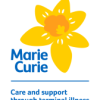
Terminal illness, dying and death are often difficult words to hear and they can fill a lot of people with fear. Yet mortality is an inescapable part of life. So, why is it that so many of us are afraid to talk about it?
This month Marie Curie has published a report, Difficult conversations with dying people and their families, which saw researchers carry out face-to-face and telephone interviews with terminally ill people, carers and bereaved carers to talk about their experience. The report concludes that that the voices of terminally ill people and current and bereaved carers are often missing in discussions about end of life care.
Facing ‘Difficult Conversations’
For many people, talking about death and dying is very difficult. We can all be very reluctant to talk about death and not just our own, but that of our family and friends, even when very sick. This can have a real impact on the kind of death experienced by people. They may not get the care that they need, they may not get to do the things that they want and they may not put in place things they would like to see after they are gone.
This may also leave a legacy for their carers and family too who can often be affected by their loved ones not dying in the manner or way that they would have chosen. They want to be reassured that their loved ones have died in as good a way as possible. A ‘bad’ death can leave long lasting emotional issues.
We often look to healthcare professionals to lead in these conversations, but we know that many of them also find it difficult to do so. This can lead to patients not receiving the care and services they need, a lack of understanding around their diagnosis and what that means, as well as how long they have left and where they spend their final days. Our healthcare professionals need support and training to help them have these conversations.
The challenge of an aging population
Scotland’s older population is growing, and more and more people are dying every year. Many people are now living longer and with a number of long term conditions, such as dementia, heart disease, and diabetes. Caring for these people is becoming ever more complex and as their illnesses become terminal and they approach the end of life the more prepared services are the better that experience will be – not just for the patient, but for their families and carers too.
We are living in an age of austerity and although the economy may recover well, there will be increasing demands on our most costly services, which without change will inevitably lead to a drop in quality of service or in choices of what is possible.
The demand on health and social care services for older people will increase considerably. Hospitals are expensive places to run, yet Marie Curie research shows that the NHS can make considerable savings by supporting people to die at home. With home being where most people would prefer to die then there is a practical and economic incentive for the NHS to talk to patients about where they want to die and to put in place the support to enable that to happen.
Empowering terminally ill people
There are certain things that terminally ill patients should be entitled to – including to know when death is coming, what they can expect from their disease and how it will progress. They should receive pain relief, they should have as much choice and control as possible over their care and their place of care, they should be able to access spiritual and emotional support, be supported to develop advance directives about their care if their condition deteriorates and they can no longer make decisions. Above all they should be entitled to dignity and a chance to say goodbye to their loved ones.
Ultimately, we need to empower people to take charge of their own death. Doing this it will greatly improve the chances of getting the death they want. All of this starts with a conversation.
But this is certainly not the case for all terminally ill people at present. By encouraging a more open culture about death and empowering people and professionals to have these open and honest conversations we can look to a future where people with a terminal illness can have a ‘good’ death, as they define it.
Richard Meade
Head of Policy and Public Affairs, Scotland
Marie Curie Cancer Care

